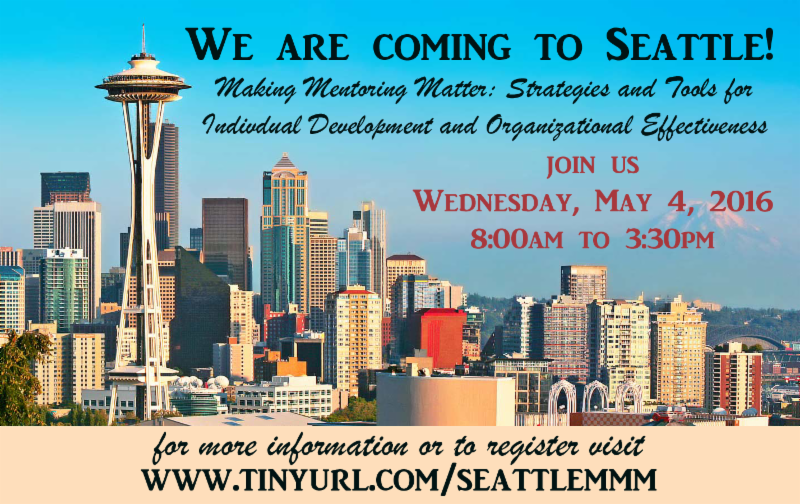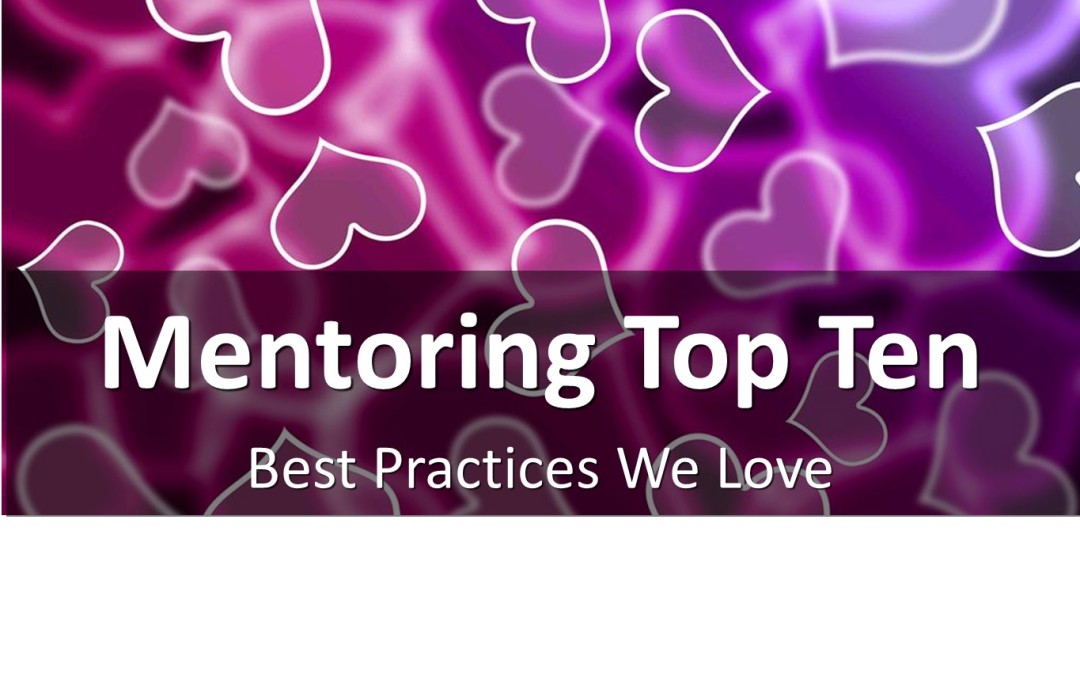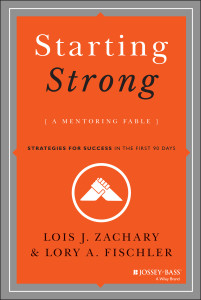
Mentoring: The Business Imperative and Corporate Responsibility You May Be Missing
Mentoring has become a business imperative and a corporate responsibility. (more…)

Mentoring has become a business imperative and a corporate responsibility. (more…)

The idea of inserting accountability into a mentoring relationship may seem unnecessary. And yet, unless you build in a process to ensure accountability, there is always a temptation to sidestep it.
When mutual accountability becomes an ongoing expectation in a mentoring relationship it creates a shared frame of reference. It strengthens the relationship by improving communication and avoiding mentoring pitfalls. It enables partners to make midcourse corrections.
When mentoring partners engage in regular conversations about their mentoring relationship, it maintains the momentum of the relationship and contributes value to the learning of each mentoring partner.
Accountability conversations need not be cumbersome, but they should be held regularly, whether it is once a month or every quarter. If your relationship seems to be going well, checking in on its health will help ensure that you and your mentoring partner’s need are being met. At the same time, accountability conversations can assist you in gauging your progress over time and help you decide what you steps you can take to grow and improve your relationship.
We’ve developed a Mentoring Partner Check-In Accountability Tool to guide regular accountability conversations.You and your mentoring partner can complete this tool independently and then compare your responses. Or, you and your mentoring partner can complete this tool together.
You and your mentor should plan to use this tool periodically to ensure that you are staying on track. And, even if you haven’t agreed to do so initially, feel free to introduce this tool to your mentor partner at any time during your mentoring relationship. This may prove especially helpful if you suspect that your meeting time could be better utilized and you aren’t comfortable raising the issue with your mentor.
Use the Mentoring Partnership Check-In Accountability Tool throughout your relationship to make sure you stay on track and the trust level remains high.

In the spirit of Valentine’s Day, here’s our mentoring ten top list for the month of February.
#10 Revisit, refine and recommit to your development goals.
#9 Check in with your mentoring partner to evaluate progress.
#8 Pay attention to both what is said and what is not said.
#7 Balance care and compassion when giving hard feedback.
#6 Keep an open mind when receiving feedback.
#5 Challenge your mentee with a stretch project or assignment.
#4 Explore areas of diversity and difference.
#3 Listen twice as much as you speak.
#2 Ask probing questions rather than giving answers.
#1 Get out of your comfort zone and try something new.

Mentoring success depends on the degree to which mentoring partners roll up their sleeves and do the work. Yes, we said, “work.” Throughout your mentoring relationship, you and your mentoring partner need to be fully engaged in building and strengthening your relationship and focused on achieving your mentoring goals.

 Starting Strong: A Mentoring Fable provides a view inside six successful mentoring conversations that take place over 90 days. The reader is privy to the thoughts and reflections of both the mentor and mentee, and gets to observe the personal dynamics of a successful mentoring relationship as it unfolds. It’s an excellent training resource because it models how good mentoring should look and feel.
Starting Strong: A Mentoring Fable provides a view inside six successful mentoring conversations that take place over 90 days. The reader is privy to the thoughts and reflections of both the mentor and mentee, and gets to observe the personal dynamics of a successful mentoring relationship as it unfolds. It’s an excellent training resource because it models how good mentoring should look and feel.
Cynthia is one of the mentors you meet in the book. She is an experienced mentor who is committed to her own growth and development as a mentor and the growth and development her mentees.
The story of Cynthia and her Gen-Y mentee unfolds over 90 days (six mentoring meetings) and you get to sit in on each of them. You will hear their private thoughts before, during and after their meetings. At the end of each chapter, you will find questions to prompt personal reflection and spark conversation about the chapter content.
Cynthia learned the hard way about how to create a successful mentoring partnership. After a few failed mentoring relationships of her own, she grew from the experience. By the time she launched her next relationship, she was savvier and had a clearer understanding of what it takes to achieve tangible results.
What made the difference for Cynthia? What did she do differently that made her more successful?
In Starting Strong, you will learn about Cynthia’s strategies for mentoring success:
1. Cynthia recognizes that her mentee will be uneasy as the more junior employee, mentored by a senior executive. She takes time to get to know him and put him at ease before launching into the work of mentoring.
2. Some key structures and agreements help set the tone and expectations for progress and accountability. The mentee, who is new to mentoring, thought mentoring was an informal drop-in relationship.
3. Learning is the purpose and product of mentoring — and its goals drive the learning. Mentors and mentees alike struggle with goal setting. It can be tempting for mentees to pick goals they can easy achieve or that aren’t relevant to their work success.
4. Application of skills and learning are a critical part of mentee success.
5. Stumbling blocks are inevitable in mentoring relationships. Mentors and mentees need a confidential, safe place to get coaching around issues that surface.
6. The 90 day mark is an excellent time to schedule a check-in with mentoring partners.
The conversation playbook guides you so that you can engage in parallel conversation with Cynthia and her mentee. It prepares you for your mentoring sessions by suggesting appropriate conversation topics, starters and probing questions to use to build a solid foundation for your own mentoring relationships during the first 90 days.